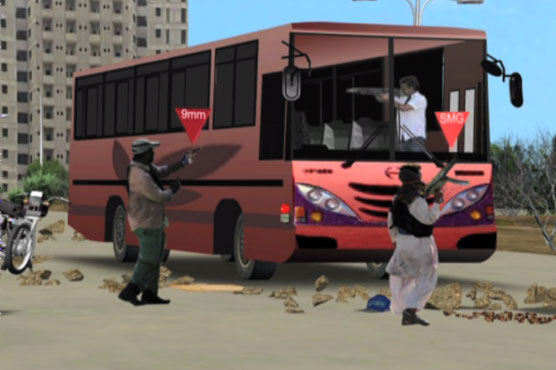Safoora attack has made it clear once again that: no one — absolutely no one
— who exists outside the narrow, distorted version of Islam, that these
militants cum terrorists promote, is safe in Pakistan.
The brutal attack against the Ismaili community also raises some very grave
questions in the context of Karachi and the security policy recently adopted in
the city.
Clearly, whatever the state has done over the last 18 months in Karachi,
there is no rational expectation that no more terrorist attacks will occur or
that all terrorist attacks will be foiled. But there is a sense that this
military strategy being pursued in Karachi makes little sense— and that its
focus, which seems mostly MQM’s militant elements — is too narrow.
 There is literally no concrete action against the extremist mosque, madaris
or social welfare networks that are brainwashing some simple-minded people and
recruiting them as militants.
There is literally no concrete action against the extremist mosque, madaris
or social welfare networks that are brainwashing some simple-minded people and
recruiting them as militants.
Simply breaking up existing cells of militants does little to ensure the
next generation of militant cells and groups are not being created.
At some point, the killers would have been taught to believe that the
victims were deserving of death for their religious beliefs. As hard as it is to justify, barging into a bus full of members of a particular sect and shooting every single one of them point blank - It is probably the sickest form of human genocide, if they were ever considered humans by their perpetrators.
Simply eliminating
armed militants will lead to little long-term success when a vast network of
extremism still exists, brainwashing the next generation of jihadis.
Drone
strikes and blind bombardment of militant sanctuaries won’t curb extremism, it
may give rise to number of people vulnerable to become the next line of
Jihadis.
Bushra
2345 hours
Teusday 19 May 2015
The shocking Safoora carnage
Posted by
Anonymous
0
comments
![]()
Unsilencing Balochistan
Sabeen Mahmud, murdered on April 24 as she drove to her home. As harsh as it may sound, it is becoming increasing clearer that to
be liberal and outspoken in the Pakistan is equivalent to painting a
target in the middle of your forehead.
There is a lot of talk about the ‘foreign hand,’ in destabilising Balochistan. That may be very much true. But our foes only stand a chance because of our own reckless policies. The political disturbance in Balochistan is very much made in Pakistan. The government simply can’t shrug off its own responsibility by blaming other countries. Any hostile country will jump at the opportunity created by our own blunders.
Empower the people of Balochistan with their own identity and their elected provincial government with full control on their resources and no foriegn agency will find space for its miscreant activities.
What we need here is a political solution for a political problem. Why is the government of Pakistan, that seems at the forefront in facilitating a dialogue between Afghan Taliban and the Afghan government, is so hesitant in following the same process within our own country ?
Bushra
2005 hours
Friday 1 May 2015
Posted by
Anonymous
0
comments
![]()
Subscribe to:
Posts (Atom)



